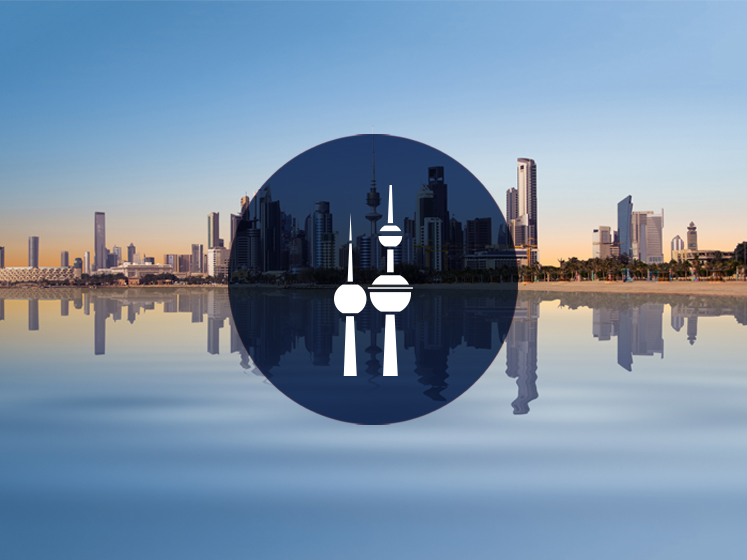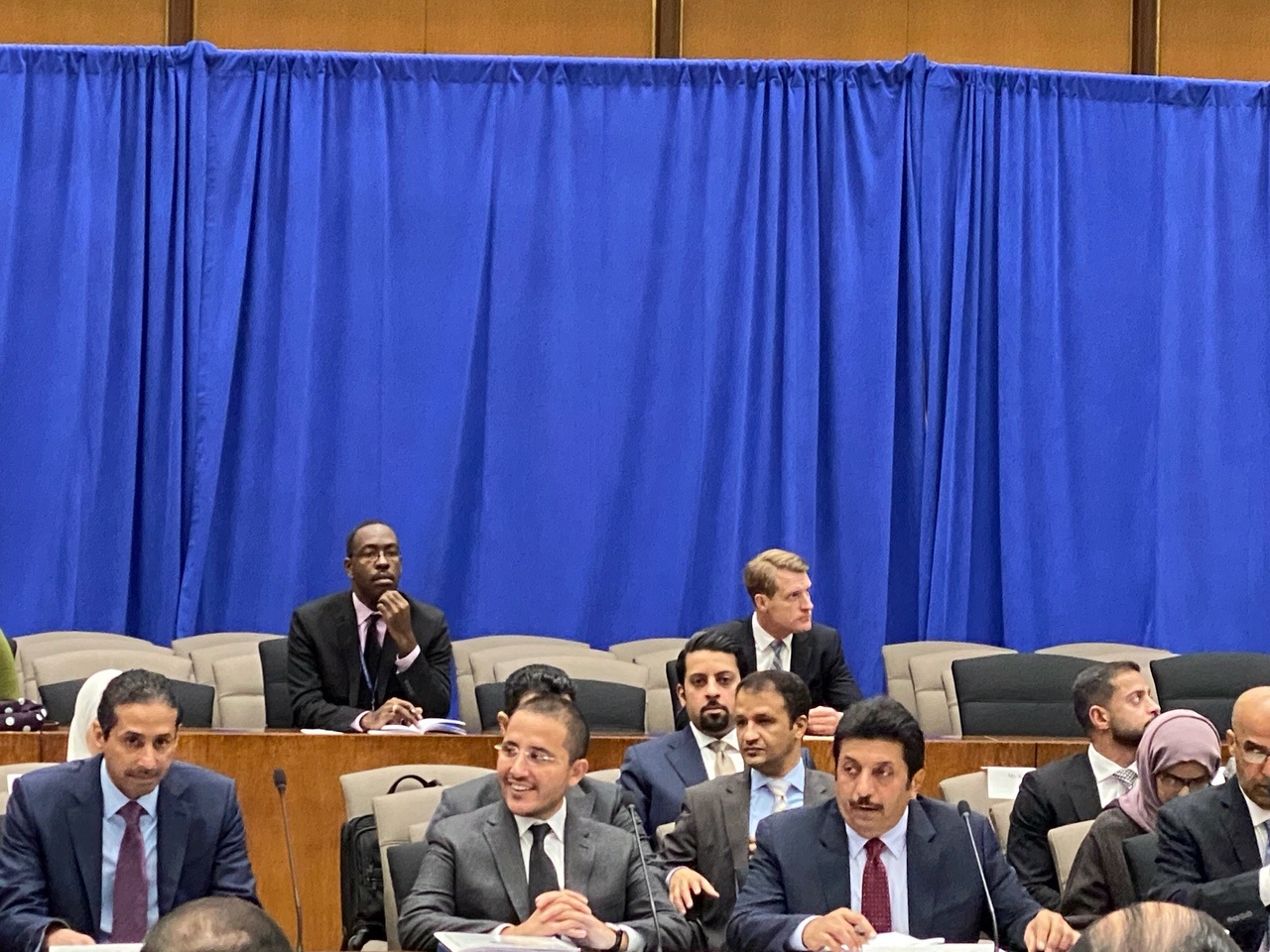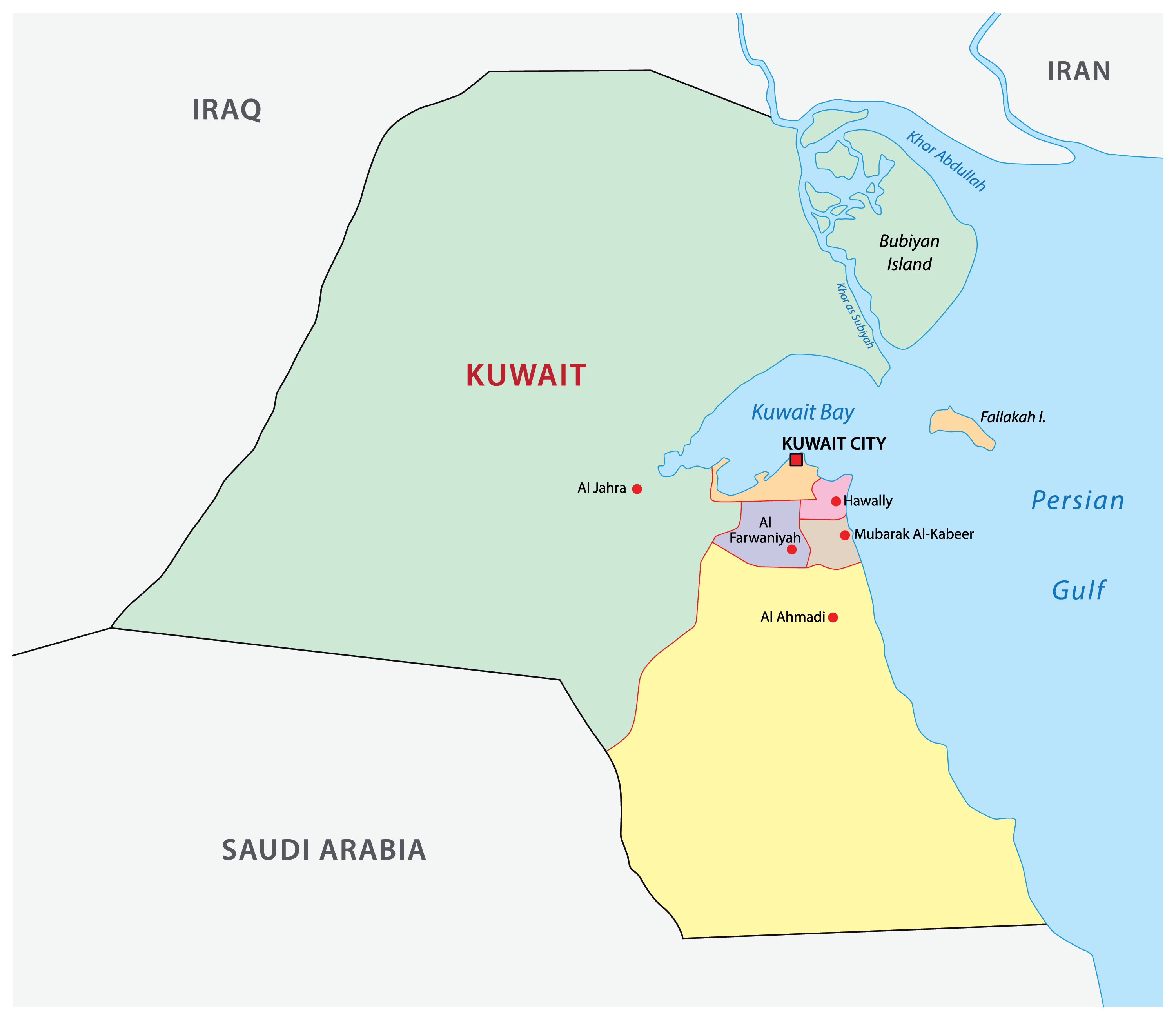Kuwait: A Strategic Hub in the Heart of the Middle East
Related Articles: Kuwait: A Strategic Hub in the Heart of the Middle East
Introduction
In this auspicious occasion, we are delighted to delve into the intriguing topic related to Kuwait: A Strategic Hub in the Heart of the Middle East. Let’s weave interesting information and offer fresh perspectives to the readers.
Table of Content
Kuwait: A Strategic Hub in the Heart of the Middle East

Kuwait, a small but strategically important nation in the Middle East, occupies a unique position on the world map. Located on the northwestern edge of the Persian Gulf, it shares borders with Iraq to the north and Saudi Arabia to the south. Its geographical location has historically made it a crossroads for trade and a focal point for regional power dynamics.
Understanding Kuwait’s Location:
Kuwait’s geographical significance stems from its proximity to vital waterways and major oil reserves. The Persian Gulf, a critical shipping route for global energy supplies, washes against Kuwait’s coastline. This maritime access, combined with the nation’s vast oil reserves, has made it a key player in global energy markets.
A Look at Kuwait’s Geography:
The Kuwaiti landscape is predominantly flat, characterized by the vast, arid Arabian Desert. Its coastline stretches for over 400 kilometers, offering access to the Persian Gulf’s rich marine ecosystem. Kuwait’s unique geographic features have influenced its history, culture, and economy.
Historical Significance:
Historically, Kuwait’s strategic location has attracted various empires and civilizations. The region has witnessed the rise and fall of ancient empires, including the Sumerians, Babylonians, and Persians. Kuwait’s strategic importance reached its peak during the 18th and 19th centuries, when it emerged as a major trading hub, connecting the East with the West. Its port city, Kuwait City, became a bustling center for commerce, attracting merchants from across the globe.
Kuwait in the 20th Century:
The discovery of vast oil reserves in the early 20th century transformed Kuwait’s fortunes. The nation rapidly became one of the world’s leading oil exporters, its economy booming and its influence on the global stage expanding. However, Kuwait’s strategic importance also made it a target during the 1990-1991 Gulf War, when Iraq’s invasion of the nation sparked international intervention.
Kuwait Today:
Today, Kuwait continues to play a pivotal role in regional and global affairs. It is a member of the Gulf Cooperation Council (GCC), a regional alliance of six Arab states, and is a key contributor to the stability and prosperity of the Middle East. Kuwait’s commitment to economic diversification, coupled with its substantial oil reserves, ensures its continued relevance in the 21st century.
Kuwait’s Importance in the Middle East:
- Energy Security: Kuwait’s vast oil reserves contribute significantly to global energy security. Its oil exports play a crucial role in meeting the energy demands of major economies around the world.
- Regional Stability: Kuwait’s political stability and its commitment to regional cooperation make it a key player in promoting peace and security in the Middle East.
- Economic Hub: Kuwait’s robust economy, fueled by its oil wealth, attracts foreign investment and fosters regional trade.
- Cultural Significance: Kuwait is a melting pot of cultures, with a rich heritage and a vibrant arts scene. Its unique cultural identity contributes to the diversity of the Middle East.
FAQs about Kuwait:
- What is Kuwait’s main source of income?
Kuwait’s primary source of income is its oil and gas reserves. The nation is a major oil exporter, with its oil wealth driving its economy and influencing its foreign policy.
- What is the population of Kuwait?
The population of Kuwait is approximately 4.2 million, with a significant portion of the population being expatriates.
- What is the capital of Kuwait?
Kuwait City is the capital and largest city of Kuwait. It is a major commercial and cultural center, home to government institutions, businesses, and historical landmarks.
- What is the official language of Kuwait?
The official language of Kuwait is Arabic. However, English is widely spoken, especially in business and government circles.
- What is the currency of Kuwait?
The Kuwaiti dinar (KWD) is the official currency of Kuwait. It is one of the highest-valued currencies in the world.
Tips for Visiting Kuwait:
- Plan ahead: Obtain a visa before traveling to Kuwait, as visa requirements vary depending on nationality.
- Respect local customs: Dress modestly and be mindful of local customs, especially when visiting religious sites.
- Explore the city: Visit historical landmarks like the Kuwait Towers and the Grand Mosque.
- Experience the culture: Attend traditional events, sample local cuisine, and visit local markets.
- Learn a few Arabic phrases: Knowing a few basic Arabic phrases will enhance your interactions with locals.
Conclusion:
Kuwait’s strategic location, abundant natural resources, and commitment to regional stability have made it a pivotal nation in the Middle East. Its influence extends beyond its borders, impacting global energy markets, contributing to regional security, and fostering economic growth. As Kuwait continues to diversify its economy and strengthen its international partnerships, its role in shaping the future of the Middle East will undoubtedly remain significant.







Closure
Thus, we hope this article has provided valuable insights into Kuwait: A Strategic Hub in the Heart of the Middle East. We hope you find this article informative and beneficial. See you in our next article!